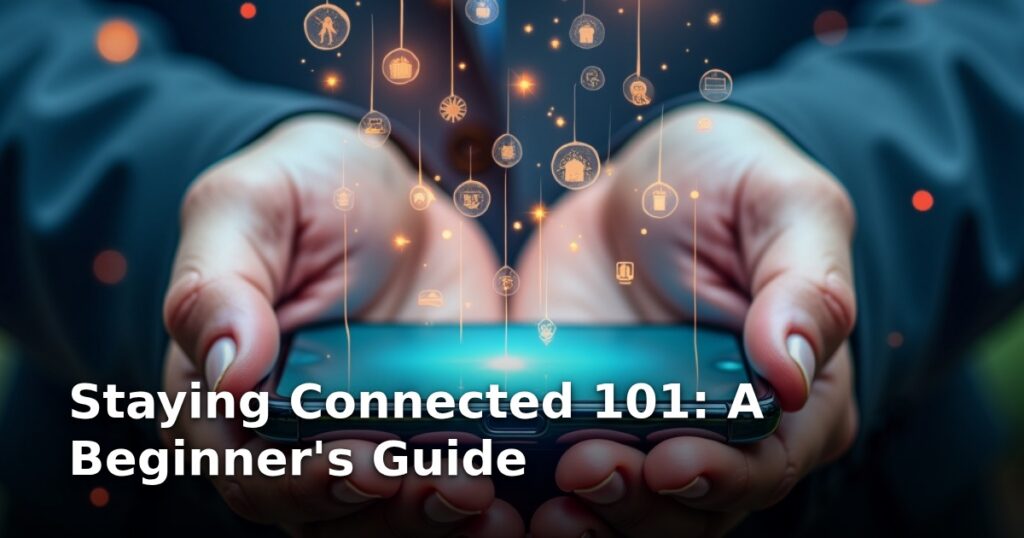Staying Connected 101: A Beginner's Guide
Welcome to the essential guide for navigating the complex yet rewarding world of maintaining meaningful relationships. Whether you are looking to strengthen existing bonds or build new ones, the principles of staying connected form the bedrock of personal fulfillment. This beginner’s guide will demystify relationship maintenance, offering practical, actionable steps for anyone starting from scratch. We will cover everything from basic conversation skills to navigating specific challenges, ensuring you feel equipped and confident.
What is Relationship Connection, Simply Put?
At its core, relationship connection is the feeling of being understood, valued, and securely attached to another person. Think of your connection like a bridge between two people. If the bridge is well-maintained—with strong supports and a clear path—communication flows easily. If it’s neglected, cracks appear, and it becomes difficult to share thoughts and feelings. This guide is about learning how to be a great bridge builder.
We aren't talking about complex psychological theories here; we are focused on practical, everyday actions. Connection is built moment by moment through paying attention, listening actively, and showing genuine care. This applies whether you are dealing with holiday relationship advice during busy family gatherings or trying to keep the spark alive in a long-term partnership.
Why Staying Connected Matters for Beginners
Starting to focus on connection might seem daunting, but the benefits are immediate and profound. Strong connections act as a buffer against life's inevitable stresses. When you know you have reliable support, challenges feel less overwhelming.
For beginners, understanding connection helps prevent minor misunderstandings from escalating into major conflicts. It allows you to navigate tricky situations, such as when you need holiday relationship advice for managing differing family traditions, or when external pressures test your bond. Ultimately, mastering connection leads to greater personal happiness and resilience.
Essential Terminology Explained
To navigate relationship discussions easily, let’s cover a few fundamental terms:
- Active Listening: This means listening to understand, not just to reply. It involves putting away distractions, making eye contact, and summarizing what the other person said to confirm you grasped their meaning.
- Validation: This is acknowledging someone else’s feelings as real and understandable, even if you don't agree with their actions. For example, saying, "I can see why you feel frustrated right now" validates their emotion.
- Boundaries: These are the clear, non-negotiable limits you set for how others can treat you. They are essential for maintaining individual space and respect within any relationship.

Getting Started: The First Steps to Connection
Building connection is a marathon, not a sprint. Start small with these foundational practices:
Step 1: Prioritize Presence Over Proximity
It’s easy to be in the same room as someone while mentally miles away. True presence means dedicating focused, undistracted time to the person you are with.
- The 15-Minute Rule: Commit to 15 minutes of device-free, focused conversation daily. Ask open-ended questions that require more than a "yes" or "no" answer.
- Putting Down the Phone: When someone important is speaking, physically place your phone screen-down or in another room. This non-verbal signal communicates, "You are my priority right now."
Step 2: Mastering Basic Effective Communication in Marriage and Partnerships
Effective communication in marriage (or any committed partnership) relies heavily on vulnerability and clarity. Beginners often assume their partner knows what they need, which leads to disappointment.
- Use "I" Statements: Instead of blaming ("You never help with chores"), state how you feel ("I feel overwhelmed when the chores pile up, and I need us to make a plan together"). This reduces defensiveness.
- Schedule Check-ins: Just as you schedule meetings for work, schedule short, calm times to discuss important topics. This prevents sensitive issues from being sprung on your partner during an argument.
Step 3: Navigating External Stressors
Relationships often feel the strain when external forces intervene. This is particularly true when staying connected during stressful work periods.

When work demands intensify, proactively communicate the pressure you are under. Instead of withdrawing silently, try: "Work is intense this week, so I might be quieter than usual. Could we schedule 30 minutes on Sunday just to reconnect?" This manages expectations kindly.
Common Beginner Mistakes to Avoid
Even with the best intentions, new relationship builders often fall into common traps. Being aware of these can save you significant heartache.
Mistake 1: Confusing Solving with Listening
When someone comes to you with a problem, the natural urge is to immediately offer a solution. However, often people just need to feel heard. If you jump straight to "fixing it," you might bypass their need for emotional acknowledgment. Always ask: "Are you looking for advice right now, or do you just need me to listen?"
Mistake 2: Ignoring Relationship Maintenance During Busy Times
This is where many relationships falter. When life gets hectic—such as during the holidays or intense work cycles—connection often becomes the first thing neglected. If you don't actively invest time, the bridge weakens quickly. This is especially relevant when dealing with managing in-law relationship stress; if you aren't connecting with your partner about the stress, external issues can create internal distance.
Mistake 3: Waiting for the "Perfect" Time
Beginners often wait for a quiet weekend, a vacation, or a lull in the schedule to have important conversations or quality time. The reality is that the "perfect time" rarely arrives. Connection happens in the small, imperfect moments carved out of busy schedules.
Advanced Topics for the Growing Connector

Once you master the basics of presence and clear communication, you can tackle more nuanced areas:
Dating Advice for the New Year and Rekindling Romance
If you are new to dating or restarting dating after a long break, focus on shared experiences over intense interrogation. Dating advice for the new year often centers on setting intentions. Instead of focusing solely on finding "The One," focus on finding someone with whom you can practice your new connection skills. Plan activities that allow for natural conversation and shared laughter, rather than stressful, formal interviews.
Managing In-Law Relationship Stress as a United Front
Stress related to extended family is a major relationship challenge. The key here is partnership. Before engaging with in-laws, ensure you and your primary partner are aligned on boundaries and expectations. Discussing potential friction points beforehand—and agreeing on how you will support each other during difficult interactions—is vital for managing in-law relationship stress without letting it erode your core bond.
Next Steps for Continued Learning
You have taken the first crucial step by seeking this information. To continue growing your connection skills:
- Read One Book: Select a highly-rated, accessible book on communication (look for titles emphasizing active listening or non-violent communication).
- Practice Reflective Feedback: After a challenging conversation, privately reflect: "What went well? What could I have done differently?" Avoid blaming your partner; focus only on your actions.
- Schedule Connection: Put "Date Night" or "Partner Chat" into your calendar right now. Treat it with the same importance as a mandatory work meeting.
Conclusion: Building Bridges That Last
Staying connected 101 is fundamentally about intentional effort and empathy. Relationships are dynamic systems that require regular maintenance, much like a garden or a car. By focusing on presence, practicing clear "I" statements, and proactively addressing stress points—whether they are related to work, holidays, or family dynamics—you are laying a robust foundation. Be patient with yourself; there will be stumbles. But every attempt to understand and be understood is a success. Start small today, and watch your connections flourish.



